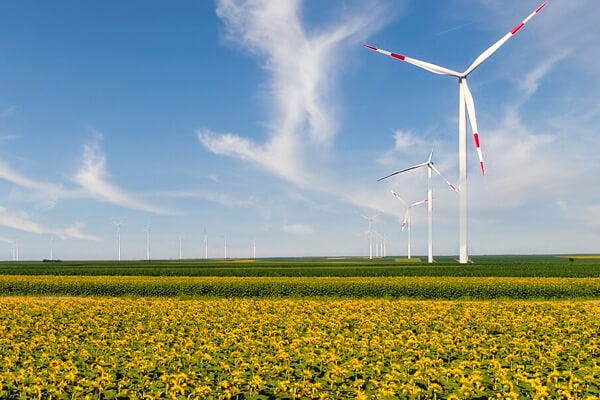DAY 557 OF THE WAR: Israeli Concerns Mount Over US-Iran Negotiations; Hostage Discussions Appear Stalled; Latest Security Scandal Emerges; US Blocks Chinese Involvement in Jerusalem Project
Tel Aviv Diary, April 15, 2025
This morning, Israelis woke up to a realization I have been writing about for the past few days: President Trump appears poised to pursue a simplified agreement that will not dismantle Iran’s nuclear program. At best, the current deal under discussion might resemble the one President Obama brokered—except now, it's likely to be worse due to the passage of time. Steve Witkoff has made it clear that Netanyahu’s suggestion of a “Libyan model” is off the table; the U.S. does not intend to seek that approach. However, instead—according to a recent interview with Witkoff on Fox News—the U.S. proposal aims to limit uranium enrichment to 3.8%, which is adequate for civilian nuclear power but insufficient for military purposes, effectively reverting to the original limitations set by the JCPOA.
The primary disagreement currently revolves around the U.S. demand for Iran to remove all uranium enriched since America’s withdrawal from the JCPOA, while Iran insists on retaining the material under strict IAEA oversight, citing concerns that Trump could exit the agreement again. Many Israelis are beginning to recognize the flaws in our Iran policies— and additionally, the high expectations some Israelis had for Trump may have been misplaced. Unless Iran commits a major miscalculation, it is unlikely that Trump will engage in warfare with them—or authorize Israel to do so.
We must face the fact that this issue will be deferred once again. Although we hope this delay will be significant, as I expressed in my last piece, I am skeptical that even a well-intentioned and skilled real estate developer like Witkoff can outmaneuver Iranian negotiators, who have elevated nuclear diplomacy to a fine art. We can hope for a regime change in Tehran eventually. In the interim, however, we must accept that Iran will likely remain only about a year away from developing a nuclear bomb.
TALKS WITH HAMAS
Negotiations with Hamas may have reached an impasse. Hamas is unwilling to release hostages unless there is a clear strategy to end the war—something Netanyahu is not prepared to offer. There has been some talk of moving into a second phase of negotiations, but Israel's demand that Hamas completely disarm and transition into a political entity in Gaza, is a stipulation Hamas is unlikely to accept. Netanyahu, for his part, seems unwilling to agree to anything short of “total victory,” regardless of how long it takes, or whether we recover the hostages alive.
We remain stuck in the same stalemate that has persisted for months. Previously, the return of hostages was only achieved because Israel agreed to move to the second phase of negotiations—only to later renege on its signed agreement. Once again, we face the same, stark binary choice: either recover our hostages, or continue a seemingly endless war with an exhausted army. That is our present reality. The only real hope now lies in the possibility that Trump might pressure Netanyahu to end the war and bring the hostages home. However, whether President Trump will take such action is uncertain.
Meanwhile, as the war drags on, this afternoon’s statement released by the IDF was so devoid of substance that I would have been embarrassed to issue it. Here are the IDF’s remarks:
For the fifth time since the beginning of the war: The IDF and Shin Bet have eliminated the commander of Hamas’ Shuja’iyya Battalion — his predecessor was killed last week.
The IDF and Shin Bet conducted a strike on Sunday in the Shuja’iyya area, killing terrorist Muhammad al-Ajlah, the replacement for the previous Hamas Shuja’iyya Battalion commander, Haitham Razak Abd al-Karim Sheikh Khalil, who was eliminated last week.
Throughout the war, al-Ajlah served as the commander of the combat support company within the Shuja’iyya Battalion. He was responsible for supplying weapons to the battalion’s operatives to carry out terrorist attacks against IDF forces and Israeli civilians.
Al-Ajlah is the fifth Hamas Shuja’iyya Battalion commander eliminated since the beginning of the war, and the third since the launch of Operation “Iron Swords.”
Prior to the strike, precautionary measures were taken to reduce the risk to civilians, including providing advance warning, using precision weaponry, and conducting aerial surveillance.
LATEST SECURITY SCANDAL
A new security affair emerged in Israel today, following the revelation of a significant leak within the Shin Bet (Israel Security Agency). Although the existence of the leak was disclosed late last night, a court issued gag order initially prohibited the release of any details. However, the ban was lifted after several right-wing Knesset members violated the gag order and publicly revealed information, prompting the court to permit broader publication.
The scandal centers on a reserve Shin Bet officer who allegedly removed classified documents from the agency. The leak was exposed after Channel 12’s senior reporter Amit Segal aired a report claiming the Shin Bet was investigating possible infiltration of the police by the far-right Kahanists, citing a classified document signed by Shin Bet chief Ronen Bar. An internal probe was promptly initiated, which quickly pinpointed the officer responsible for the leak of the sensitive information.
The Shin Bet officer, who was arrested last week, is accused of providing the classified information to Minister of Diaspora Affairs Amichai Shikli and journalist Amit Segal. He is also suspected of leaking additional documents related to the Shin Bet’s internal investigation into its conduct on October 7 to another journalist. Today, a court extended the officer’s detention by an additional day. Government ministers quickly characterized the arrest as “politically motivated,” accusing the judicial system of “selective enforcement” and decrying what they claim as interference by the so-called “deep state.”
Despite assertions that the leak did not jeopardize national security, current and former Shin Bet officials expressed deep concern over the affair. They emphasize fundamental danger when agency personnel unilaterally decide to release classified information. The incident has further fueled political attacks against Shin Bet Director Ronen Bar, particularly from Prime Minister Netanyahu and his supporters, who view Bar as a symbol of institutional opposition.
NEW FOOTAGE: U.S. AIRMEN DEFEND ISRAEL IN RECENT IRANIAN ATTACK
Today, the U.S. Central Command released new video footage depicting U.S. airmen actively participating in Israel’s defense during the recent large-scale missile and drone attack by Iran.
U.S. HALTS CHINESE INVOLVEMENT IN JERUSALEM RAIL PROJECT
U.S. diplomats have intervened in Jerusalem's Blue Line light rail project, halting a planned partnership with Chinese state-owned manufacturer CRRC. The disruption occurred just as Israel was about to finalize a 9-billion-shekel financing agreement for the 31-kilometer rail route. Aryeh Lightstone, a former U.S. diplomat who now serves in the Trump administration in special envoy Steve Witkoff's Middle East office, reportedly stepped in at the last minute to block approval for the Chinese supplier. This move compelled the franchisees, Dan and Danya Cebus, to search for alternative suppliers.
The American objection to CRRC, a company reportedly on a U.S. blacklist aimed at curbing China's global economic influence, followed a month of intensifying diplomatic pressure. U.S. economic attaché Larry Memmott had previously raised concerns with Israel's Ministry of Finance. However, the matter was shuffled between various Israeli authorities before ultimately escalating to the political level. The intervention occurred while Prime Minister Netanyahu was returning from Washington, D.C., where he had meetings with U.S. Trade Representative Jameson Greer.
Beyond the light rail dispute, American officials presented additional demands regarding U.S. commercial interests in Israel. These demands include opposition to reforms in Israel's natural gas market, which would diminish Chevron's cross-ownership in major gas fields. There is also resistance to proposed regulations that would require streaming services like Netflix to invest in Israeli content, along with concerns over Israel adopting European models (“What’s good for Europe”…) for its import regulations instead of American standards.
Israel's Accountant General has declared that the financial closure for the Blue Line will proceed despite the controversy surrounding the supplier, with train cars to be chosen later through a separate competitive process. This development introduces yet another delay for the ambitious transit project, which has already faced multiple setbacks, including the withdrawal of two previous rolling stock suppliers. The procurement of train cars, accounting for about 30% of the project's total cost, is a critical aspect of the light rail's development.
Yesterday’s Radio Show
BUSINESS
Enlight
Enlight Renewable Energy is rapidly establishing itself as a significant player in the U.S. renewable energy sector, securing over $1.5 billion in financing for three major projects in the western United States. The company's flagship Country Acres project near Sacramento, California—featuring 403MW of solar generation and 688MWh of energy storage—recently closed on a $773 million financing package from a consortium of global banks including BNP Paribas, Crédit Agricole, Natixis, and Nord/LB. Once operational in 2026, the 966-acre development is expected to power approximately 80,000 Californian households under a 30-year agreement with the Sacramento Municipal Utility District
.
Despite market volatility and shifting U.S. tariff policies under President Trump, Enlight has maintained impressive momentum, completing its third financial close in just four months. The company's Quail Ranch project near Albuquerque, New Mexico, secured $243 million in financing for its 128MW solar array and 400MWh battery storage system. This project expands upon the already operational 364MW Atrisco development and benefits from the region's superior solar irradiance—45% higher than Eastern U.S. locations—with commercial operations expected by late 2025.
Enlight's strategic approach includes optimal tax credit utilization under the U.S. Inflation Reduction Act, with its Quail Ranch project structured to bring in a tax equity investor who will contribute $135-155 million at commercial operation in exchange for tax benefits. The company's portfolio also includes the Roadrunner project (290MW solar and 940MWh storage) near Tucson, Arizona. Together, these three projects are projected to generate $135-140 million in annual revenue and $100-110 million in EBITDA during their first full year of operation in 2025-2026.
Looking ahead, Enlight is developing two additional massive projects in Arizona: the 1.2GW Co Bar project with 824MWh of storage and the 600MW Snowflake project with 1,900MWh of storage. Both are located in regions with exceptional solar irradiance levels, and construction is scheduled to begin within months. CEO Gilad Yavetz emphasized that these projects complete Enlight's "second wave" of U.S. investments, joining the operational Atrisco and Apex projects that are expected to yield approximately $200 million in annual revenue, demonstrating the resilience of the company's business strategy despite changing market conditions.
Retym
Retym, an Israeli-American chip startup founded in 2021, has emerged from stealth mode after securing $180 million across multiple funding rounds. Though incorporated in the United States, the company's operational heart is in Israel, where it employs nearly all of its 40-person engineering team. Co-founded by Dr. Aharon (Roni) El-Bachar, a Technion PhD and former executive at Samsung, Intel, and Huawei, and CEO Sachin Gandhi, Retym recently completed a $75 million round led by Spark Capital, Kleiner Perkins, and Mayfield Fund, valuing the company at approximately $500 million.
The company specializes in developing networking chips for data transmission within data centers, focusing on digital signal processing (DSP) technologies that optimize information transfer in cloud and AI infrastructure. Their timing appears strategic, as demand for such solutions has skyrocketed with the growth of AI workloads and the increasing need for efficient data transfer between servers and GPUs. Retym is positioning itself as an independent alternative in the coherent optical communications market currently dominated by major players like Marvell and Nvidia.
According to El-Bachar, Retym identified a significant opportunity in coherent DSPs that were traditionally used for long-range networks but are now penetrating shorter-distance applications, including inter-data center connections. "We're optimizing at the system level, which allows us to bring coherent optics closer to the cost and power levels of existing technologies," he explained, addressing the increasing pressure to reduce power consumption and costs as these technologies become more critical in modern computing infrastructure.
ISRAELTECH INTERVIEWS GADI BENJAMINI OF FIREDOME
As part of our continued partnership, we present this week’s feature from IsraelTech:
“Tech Meets Disaster: Can Technology Subdue the Flames?” featuring Gadi Benjamini of FireDome.
In this explosive sit-down, we talk with Gadi Benjamini, Co-Founder & CEO of FireDome, a startup that’s taking an Iron Dome-style approach to wildfire defense. With AI-powered fire suppression systems, FireDome detects, contains, and stops fires before they destroy homes and lives.
California’s latest wildfires have already burned 16,000 buildings and caused $250 billion in damages. Insurance companies are pulling out. Communities are left defenseless. Could FireDome be the Iron Dome for wildfires? FireDome offers a game-changing solution—but will the world adopt it fast enough?
This episode of the IsraelTech interview covers:
• The terrifying reality of California’s wildfires
• How FireDome predicts and suppresses fires using AI
• What’s missing in wildfire defense today (and why it’s costing lives)
• Why Israeli tech is leading the way in climate resilience
Here is a excerpt from the interview:
The complete interview can be seen here
∞–––––∞–––––∞–––––∞–––––∞–––––∞–––––∞–––––∞–––––∞–––––∞
TRAVEL ACROSS ISRAEL
Kfar Nachum National Park
Our next stop will be Kfar Nachum National Park located a mere 15 minutes from Tiberias. Kfar Nahum National Park, known in English as Capernaum, is one of the most significant Christian archaeological sites in Israel and a must-visit for anyone exploring the northwestern shores of the Sea of Galilee.
The site preserves the remains of an ancient fishing village that flourished during the time of Jesus and is mentioned multiple times in the New Testament as a place where he taught and performed miracles. According to the Gospels, Capernaum was the home of several of Jesus’s disciples, including Peter, Andrew, James, and John. It is sometimes referred to as “Jesus’ own city” because of the extended time he spent there, making it a key pilgrimage destination for Christians from around the world.
Among the most prominent features of Kfar Nachum National park is the ancient synagogue, one of the largest and best-preserved in the region. Built of white limestone in the 4th or 5th century CE, it stands atop an earlier synagogue from the 1st century, which many believe is the one where Jesus taught. Nearby is the modern octagonal church built by the Franciscans directly above the remains of what is traditionally identified as the house of St. Peter. The structure below reveals layers of domestic architecture, including a first-century house that early Christians likely venerated. Other highlights include residential ruins, olive presses, and evidence of Roman roads, giving visitors a sense of daily life in a Jewish village during the Second Temple period
.
Kfar Nachum National park is well maintained, with shaded paths, explanatory signs, and scenic views of the Sea of Galilee. Visitors can walk among basalt ruins, admire ancient mosaics, and reflect at spiritual landmarks.
Whether one visits for religious reasons, historical curiosity, or archaeological interest, Kfar Nahum offers a unique window into Jewish and early Christian life in Galilee nearly 2,000 years ago. It is also a peaceful spot to sit quietly by the water, absorbing the natural beauty and deep history that have made this site sacred for millennia.







